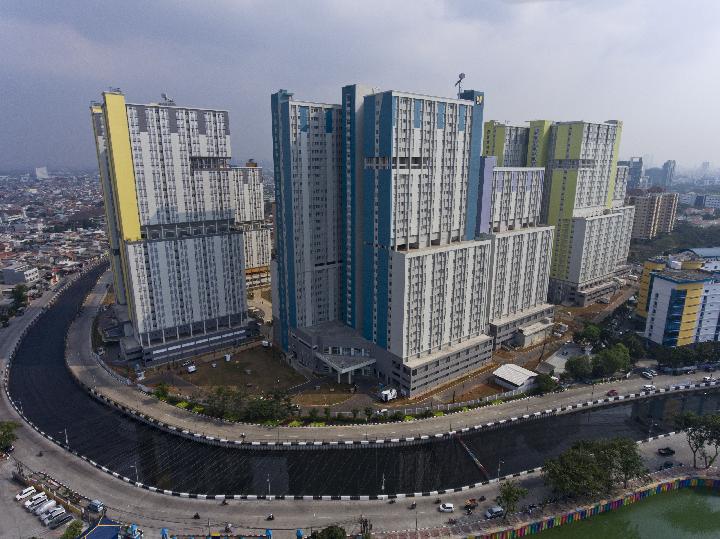Post 1 of 2: Importance of stopping Super-spreader Events
1. Between 27 Feb 2020 and 1 Mar 2020, 14,500 Malaysians and 1,500 foreigners attended a mass
tabligh gathering (religious gathering) at the Sri Petaling mosque in Kuala Lumpur. That became a trigger for a Super-spreader event. Malaysia, reported
125 new infections, bringing the total number of cases to 553. 95 of those new cases are linked to the mass
tabligh gathering at the Sri Petaling mosque in Kuala Lumpur. Confirmed coronavirus cases in surged after 5 Mar 2020 and the Malaysian government announced a nation-wide lock-down starting from 18 Mar 2020. Except essential services, all other services will be closed.
2. The number of UK infections of coronavirus has risen by 232 to 1,372, the Department of Health has announced — but the actual number of infected is estimated to be between 35,000 and 50,000 (due to a lack of testing). The UK Government has failed its people by failing to ban mass gatherings in time. Britain is certain to have a huge coronavirus outbreak, with mass gatherings banned by the British government only from next weekend (a little too late). A number of large events in UK went ahead as planned including the 15 Mar 2020 Stereophonics concert. This concert had around 4,000 to 5,000 music revellers attending at Cardiff's Motorpoint Arena. The Stereophonics concert attendees are irresponsible and stupid. But more than individual stupidity, the UK government’s incompetence in failing to stop the spread of the virus by timely intervention is noted.
3. Churches (South Korea and Singapore), Mosques (Brunei, Malaysia, and Singapore) and concerts (UK), where people in close proximity to each other, are actual or potential super-spreader events. Governments and religious authorities that are responsible (and not incompetent) would close them for short periods to limit the potential for a super spreader event.
(i) Public mass for Catholics in Singapore have been suspended indefinitely from 15 Feb 2020 in order to minimise the risk of coronavirus spread, said the Archbishop of Singapore William Goh. In a letter posted on the Roman Catholic Archdiocese of Singapore's website as well as on its Facebook page, Archbishop Goh said that all other public Catholic events with large numbers of people attending, such as formation sessions, retreats and seminars, should be suspended as well.
(ii) Singapore’s MUIS announced on 13 Mar 2020 that all mosques in Singapore would close until 26 Mar 2020 for cleaning (and to break the cycle of transmission) after several congregants tested positive for the coronavirus following the tabligh gathering in Malaysia (a super-spreader event). Contact tracing by the Singapore Ministry of Health (MOH) revealed that the 5 infected individuals frequented at least 10 mosques during their infectious period said MUIS in a statement.
(iii) According to Brunei's Ministry of Health, the 3 new cases are all linked to the same tabligh gathering in Kuala Lumpur, Malaysia, attended by Brunei's first confirmed patient. One of the three cases is a nine-month-old baby. The Ministry of Health also said that 50 cases are being treated at the National Quarantine Centre at Tudong District and are in stable condition. Brunei said on 15 Mar 2020 that its citizens and foreign residents in the country are barred from leaving.
(iv) Through detailed epidemiological investigation, Singapore’s MOH has determined that Case 66 was the primary case of this cluster, and that transmission to church members first occurred through staff meetings at the church’s Tanglin branch (355 Tanglin Road). Case 66 had reported onset of symptoms on 29 Jan 2020 – the earliest in the cluster – and had gone to work at Grace Assembly of God while symptomatic. 16 cases in this church were subsequently infected with COVID-19.
4. Without blaming anyone or any single factor, Italy’s civil protection service chief Angelo Borrelli said: "From the very start, people were behaving in a way that fuelled the national problem." But he did point to a Champions League match between Italy's Atalanta and Spain's Valencia's football clubs in Milan's San Siro stadium on Feb 19 as an egregious mistake. It was attended by 40,000 fans who celebrated the local team's win deep into the night. "We can now say, with hindsight, that it was potentially a detonator," Borrelli said of the match.
5. If you roll up to a drive-through COVID-19 testing center in South Korea, you might notice that safety procedures extend all the way to your car's air conditioning. You will be advised to hit the recirculation button so that if you're sick, you can keep your pathogens to yourself, in your car, and avoid infecting the medical personnel doing the testing. The test takes 10 minutes at most. Results are texted to you, usually the next day. And it's free — paid for by the government. Drive-through centers have helped South Korea do some of the fastest, most-extensive testing of any country. And while nobody is claiming that South Korea has defeated the outbreak, experts credit the emphasis on testing with reducing case numbers and fatalities.
(i) Date of First #COVID19 diagnosis

January 20 (South Korea)

January 21 (United States)
(ii) Number of #COVID19 tests run since first diagnosis

>270,000 (South Korea)

~23,000 (United States)





